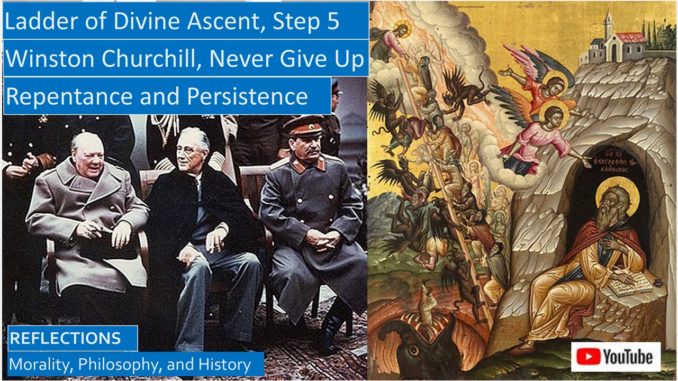
Is repentance a swift pardon, or is it a lengthy penance? Does repentance lift a heavy burden off your soul, or do you sweat the blood of Gethsemane? Is repentance like the bright sun beginning a new morning, or is it living through a dark night of the soul? Does repentance bring joy and gladness, or does it bring melancholy and despair?
Repentance is not merely a quick apology to St John Climacus. Repentance is not quick in the Ladder of Divine Ascent. The first four rungs, where we renounce the world, detach ourselves from worldly things, become an exile and pilgrim from the affairs of the world, and with daily discipline internalize God’s will in holy obedience, these first four rungs prepare us for the rung of repentance. Repentance is more an attitude and a process than an event. An attitude of humility and repentance will prepare us for the slow ascent up the remaining twenty-five steps of the Ladder of Divine Ascent. Without daily heartfelt repentance we cannot continue the climb to a godly life.
YouTube video for this blog: https://youtu.be/NiuWNsy4x4Q
YouTube script with book links: https://www.slideshare.net/BruceStrom1/st-john-climacus-on-repentance-and-the-perseverance-of-winston-churchills-wartime-speeches
As St John Climacus says,
Step 5.2. “Gather together and come near, all you who have angered God; come and listen to what I expound to you; assemble and see what He has revealed to my soul for your edification.” We repent because we have fallen. We are encouraged to “rise and be seated, you who through your falls are lying prostrate.”[1]
The Parable of the Prodigal Son is about repentance, and forgiveness. The story is the prodigal son demands his inheritance, leaves the family farm, squanders the money his father had earned by his hard labor of many years, on wine and women in a foreign land. Now that he is broke, he can only find work as a swineherd, and is forced to eat what has been fed to the hogs.
The prodigal son then proclaims, “I will get up and go to my father, and I will say to him, ‘Father, I have sinned against heaven and before you; I am no longer worthy to be called your son; treat me like one of your hired hands.’ So he set off and went to his father. But while he was still far off, his father saw him and was filled with compassion; he ran and put his arms around him and kissed him. Then the son said to him, ‘Father, I have sinned against heaven and before you; I am no longer worthy to be called your son.’ But the father said to his slaves, ‘Quickly, bring out a robe—the best one—and put it on him; put a ring on his finger and sandals on his feet. And get the fatted calf and kill it, and let us eat and celebrate; for this son of mine was dead and is alive again; he was lost and is found!’ And they began to celebrate.”[2]
We will also be quoting from the commentaries from Father John Mack and Father Vassilios Papavassiliou, their comments reflect their experience as priests hearing confessions. Father Vassilios teaches us that “the Greek word for repentance, metanoia, means ‘to have a change of heart or mind,’ while the Greek word for sin, hamartia, means ‘to miss the mark.’ If sin means missing the mark, then repentance means getting back on target.”
Father Vassilios also teaches us, “Repentance, like obedience, is rooted in humility. A proud person cannot repent, for repentance allows no room for ego and conceit. Pride blinds us to our own sins, while we go on hating those very same sins when we see them in others. Humility alone is capable of seeing the truth, of enabling us to see ourselves as we really are.”[3]
Father John Mack teaches us, “Not all are willing to endure the suffering and pain that comes from embracing the truth about themselves. Only the humble and patient can be saved, because only the humble and penitent are willing to embrace despair of themselves. And it is only despair of self which leads to true faith in the Infinite Other, who alone can save.”
Father John Mack also teaches us, “We should try harder to repent. We should be more concerned with finding our faults than noticing our accomplishments. We should sorrow more for our failures than we rejoice in our successes. We should blame ourselves rather than others. We should accept the disappointments and difficulties of life without complaint.” Repentance is as much an attitude as it is an action.[4]
THE PRISON OF REPENTANTS
The Ladder of Divi Ascent is written for monastics, as we read this work, we read of a life that is utterly impossible to live as a layman. St John Climacus was visiting another monastery, and he asked to visit a separate abode for those monks who especially needed repentance, an abode called the Prison, which was a spiritual rather than a physical prison, for those who entered this prison entered willingly, so when reading this account, we should read it as an allegory of the prison we voluntarily inhabit when we neglect repentance and forgiveness. Our dear saint visited this Prison for thirty days, what did he see there?
St John Climacus remembers:
Step 5.5 “I saw some of those guilty yet guiltless men standing in the open air all night till morning, and never moving their feet; by force of nature pitifully dazed by sleep, yet they allowed themselves no rest, but reproached themselves, and drove away sleep with dishonors and insults.”
Step 5.6 “Others lifted up their eyes to Heaven, and with wailings and outcries, implored help from there.”
Step 5.7. “Others stood in prayer with their hands tied behind their backs like criminals; their faces, darkened by sorrows, bent to the earth. They regarded themselves as unworthy to look up to Heaven. Overwhelmed by the embarrassment of their thoughts and conscience, they could not find anything to say or pray about to God, how or with what to begin their prayers. But filled with a darkness and a blank despair, they offered to God nothing but a speechless soul and a voiceless mind.”
Step 5.8. “Others sat on the ground in sackcloth and ashes, hiding their faces between their knees, and they struck the earth with their foreheads.”
This may strike the modern reader with concern. Should the abbot encourage this type of behavior? Does this sound like cultish behavior? Is this extreme behavior spiritually healthy? Our saint does reassure us that most stay in this Prison but a short time, sometimes only a week, to get their spiritual life back on track. And this discourse goes on for several pages, but we learn that evidently some monks stay at this Prison for quite some time:
Step 5.19 “This is what these blessed ones who had been called to account were actually doing. From the number of their prostrations, their knees seemed to have become wooden, their eyes dim and sunk deep within their sockets. They had no hair. Their cheeks were bruised and burnt by the scalding of tears. Their faces were pale and wasted. They were quite indistinguishable from corpses. Their breasts were livid from blows; and from their frequent beating of the chest, they spat blood. Where was to be found in this place any rest on beds, or clean or starched clothes? They were all torn, dirty and covered with lice.”
St John Climacus then reminds us that this is both an allegory of how seriously we should seek repentance from our sins, and also that this is a true account.
Step 5.19. “In comparison with them, what are the sufferings of the possessed, or of those weeping for the dead, or of those living in exile, or of those condemned for murder? Their involuntary torture and punishment are really nothing in comparison with this voluntary suffering. I ask you, brothers, not to regard all this as a made-up story.”
Our dear saint witnessed the scene when monks died during their stay in the Prison:
Step 5.22 “Most terrible and pitiful was the sight of their last hour. When his fellow-convicts learnt that one of their number was ready to precede them by finishing his course, they gathered around him while his mind was still active, and with thirst, with tears, with love, with a tender and sad voice, shaking their heads, they would ask the dying man, and burning with compassion, would say to him, ‘How are you, brother and fellow criminal? What will you say?’”
Here they are asking him what he will say to Jesus when he stands before Him on the Day of Judgment, when the lambs are separated from the goats.
“‘What do you hope? What do you expect? Have you accomplished what you sought with such labor, or not?” “Have you felt any enlightenment in your heart, or is still dark and ashamed?’”[5]
Those Protestants listening to this will question whether this dying convict is somehow relying too much on his labor of repentance and not permitting Jesus to simply forgive him. That indeed a spiritual danger; but the opposite modern tendency, not to deeply repent, perhaps is the greater spiritual danger.
What is also true is if a modern monastery were to follow this example literally, there would be complaints that this is a cult and the authorities would quickly close down such a prison, perhaps charging the Abbott with mistreatment and murder, possibly placing a few of the inmates in a mental institution, and those guilty of felonies in a real prison. Curiously, we read that the Catholic Monk Thomas Merton admired the Ladder of Divine Ascent, but balked at the extreme description of this prison.
But there is also a spiritual lesson behind the lesson, and also an historical lesson, that the ancient world was, in many ways, different from the modern world.
One spiritual lesson is we do not read that St John Climacus was eager to establish such a prison in his or other monasteries. Elsewhere in this classic our saint is quite reasonable in his advice to both the layman and the monk, emphasizing that inner repentance and devotion is far more important than the outward show and rituals. But our dear saint is not quick to condemn this Abbott for this prison for repentants but is willing to keep an open mind to see if the Prison yields spiritual benefits.
Father Vassilios agrees with this assessment, he note that the practices in this monastic prison of repentants “are by no means typical of Orthodox monasticism, such practices are generally rejected as contrary to the Orthodox understanding of monastic spirituality. St John Climacus, while not condoning such practices as a norm, clearly regards the severity of this prison of repentants as an example of uncompromising repentance. It is their zeal rather than their method that St John Climacus is praising.”[6]
Historically, monasteries were much larger in ancient Christian Egypt than they are today, they may have filled the same role that the Army and Navy plays in American society, the place where young men go if they have nowhere else to go. We know monks were numerous, ancient accounts tell us how bands of monks occasionally rioted in the streets of Alexandria. In the ancient world there were no prisons, as we learned in our video on ordinary life and justice in the ancient world, and sometimes felons fled to monasteries to live a life of repentance. There were no stand-alone hospitals or mental institutions, monasteries also filled these roles.
St John Climacus was inspired by his thirty-day stay in the prison for repentants:
Step 5.23. After my stay in the prison, “I nearly despaired of myself, seeing my own indifference, and comparing it with their suffering. For what a place and habitation theirs was! All dark, reeking, filthy and squalid. It was rightly called the Prison and house of convicts. The very sight of the place was sufficient to teach all repentance and mourning. But what is hard and intolerable for others becomes easy and acceptable for those who have fallen away from virtue and spiritual riches.”
The Abbott asked our saint what his impressions was of this Prison, St John Climacus says,
Step 5.26. “I was amazed, I consider those fallen mourners more blessed than those who have not fallen and are not mourning over themselves; because as a result of their fall, they have risen by a sure resurrection.”
Scriptures tell us that sins against the Holy Spirit are not forgiven, but we are not really told what these sins are. This possibility is not discussed in the Ladder of Divine Ascent, although we are warned that repeated unrepented sins can sink us:
Step 5.30. “Many sins from long neglect become incurable, but with God all things are possible.”
If we look up to rungs ahead, we discover just as we are here commanded to repent, we are later urged not to sink into despondency. Indeed, here we learn when we repent:
Step 5.38. “Nothing equals or exceeds God’s mercies. Therefore, he who despairs is committing suicide.”
Why should we be angry at God for our sufferings on this earth? St John Climacus warns us,
Step 5.29 “The account of the judgments of God and our falls is shrouded in darkness. It is impossible to know which are the falls that come from carelessness, and which come from providential abandonment, and which come from God’s turning away from us.” [7]
When King David was forgiven for his great sins committed with Bathsheba, he composed the Great Penitential Psalm 51, which roughly corresponds with Step 5 of the Ladder of Divine Ascent on Repentance:
Psalm 51:1
Have mercy on me, O God,
according to your steadfast love;
according to your abundant mercy
blot out my transgressions.
Step 5.1 “Repentance is the daughter of hope and the renunciation of despair.”
Psalm 51:2
Wash me thoroughly from my iniquity,
and cleanse me from my sin.
Step 5.1 “Repentance is the renewal of baptism.”
Psalm 51:3
For I know my transgressions,
and my sin is ever before me.
Step 5.1 “Repentance is purification of conscience.”
Psalm 51:4-5
Against you, you alone, have I sinned,
and done what is evil in your sight,
so that you are justified in your sentence
and blameless when you pass judgment.
Indeed, I was born guilty,
a sinner when my mother conceived me.
Step 5.1 “A penitent is a buyer of humility.” The footnote says that the Greek word refers to the slave who did the shopping for the family.
Psalm 51:6-7
You desire truth in the inward being;
therefore teach me wisdom in my secret heart.
Purge me with hyssop, and I shall be clean;
wash me, and I shall be whiter than snow.
Step 5.1 “Repentance is constant distrust of bodily comfort. Repentance is self-condemning reflection, and carefree self-care.”
Psalm 51:8
Let me hear joy and gladness;
let the bones that you have crushed rejoice.
Step 5.1. “Repentance is a mighty persecution of the stomach, and a striking of the soul into vigorous awareness.”
Psalm 51:9-10
Hide your face from my sins,
and blot out all my iniquities.
Create in me a clean heart, O God,
and put a new and right spirit within me.
Step 5.1 “Repentance is a contract with God for a second life.”
Psalm 51:11-13
Do not cast me away from your presence,
and do not take your holy spirit from me.
Restore to me the joy of your salvation,
and sustain in me a willing spirit.
Then I will teach transgressors your ways,
and sinners will return to you.
Step 5.1 “Repentance is reconciliation with the Lord by the practice of good deeds contrary to the sins.”
Psalm 51:14-15
Deliver me from bloodshed, O God,
O God of my salvation,
and my tongue will sing aloud of your deliverance.
O Lord, open my lips,
and my mouth will declare your praise.
Step 5.1 “A penitent is an undisgraced convict. Repentance is reconciliation with the Lord by the practice of good deeds contrary to the sins.”
Psalm 51:16
For you have no delight in sacrifice;
if I were to give a burnt offering, you would not be pleased.
Step 5.28 “It is impossible for us who have fallen into the pit of iniquities ever to be drawn out of it, unless we sink into the abyss of the humility of the repentant.”
Psalm 51:17
The sacrifice acceptable to God[d] is a broken spirit;
a broken and contrite heart, O God, you will not despise.
Step 5.1 “Repentance is the voluntary endurance of all afflictions. A penitent is the inflicter of his own punishments.”
Psalm 51:18-19
Do good to Zion in your good pleasure;
rebuild the walls of Jerusalem,then you will delight in right sacrifices,
in burnt offerings and whole burnt offerings;
then bulls will be offered on your altar.
REPENTANCE, PERSISTENCE, AND WINSTON CHURCHILL
Let us take courage from this encouragement by St John Climacus:
Step 5.30. “Do not be surprised that you fall every day; do not give up but stand your ground courageously. And assuredly, the angel who guards you will honor your patience.”[8]
This reminds me of the “Never give up” speech Winston Churchill delivered to the graduating class of Harrow during World War II. Churchill wanted to give a speech they would remember all their lives, a speech they would never forget, a speech that would inspire them all their lives. This line was in the middle of this short speech:
“Never give in. Never give in. Never, never, never, never–in nothing, great or small, large, or petty–never give in, except to convictions of honor and good sense. Never yield to force. Never yield to the apparently overwhelming might of the enemy.”
This is true also of the spiritual life, a life of repentance that never gives up, always repentant of our shortcomings, and just as St John Climacus warns us of the spiritual danger of living in despair, so Winston Churchill encouraged the boys at Harrow, though it had been just a few short months since British pilots had persevered in the Battle of Britain:
“Do not let us speak of darker days: let us speak rather of sterner days. These are not dark days; these are great days — the greatest days our country has ever lived; and we must all thank God that we have been allowed, each of us according to our stations, to play a part in making these days memorable in the history of our race.”[9]
Churchill delivered many memorable speeches. He regarded Nazis not as something to negotiate with, but as pure evil to be fought to the bitter end, much like the Christian should regard the sin in his life, much like those in the Prison for repentants. Indeed, the virtuous often must struggle and suffer.
This was Churchill’s speech when he was appointed Prime Minister:
“I have nothing to offer but blood, toil, tears, and sweat. We have before us an ordeal of the most grievous kind. We have before us many, many months of struggle and suffering.
You ask, what is our policy? I say it is to wage war by land, sea, and air. War with all our might and with all the strength God has given us, and to wage war against a monstrous tyranny never surpassed in the dark and lamentable catalogue of human crime. That is our policy.
You ask, what is our aim? I can answer in one word. It is victory. Victory at all costs – Victory in spite of all terrors – Victory, however long and hard the road may be, for without victory there is no survival.
Let that be realized. No survival for the British Empire, no survival for all that the British Empire has stood for, no survival for the urge, the impulse of the ages, that mankind shall move forward toward his goal.”[10]
So, too, we each must wage war against sin every day of our lives, as St John Climacus teaches us:
Step 5.33 “He who really keeps account of his actions considers as lost every day in which he does not mourn, whatever good he may have done in it.”
Our saint cautions us:
Step 5.37 “We must carefully consider whether our conscience has ceased to accuse us, not as a result of purity, but because it is immersed in evil. A sign of deliverance from our falls is the continual reckoning of ourselves as debtors.”[11]
Our modern-day Churchill is Ukrainian President Volodymyr Zelenskyy, who when Russia invaded and most observers thought it would be a matter of days before the Russians would be marching down the streets of Kiev, was asked by the Americans if he wanted to flee and continue the fight in exile, he bravely announced to the world he was staying in Kiev, and that no young men could flee the conflict in Ukraine, that they all had to stay and fight, and he replied, “I do not need a ride, I need ammunition.”
We should battle with the evil in our souls with the same resolve Churchill fought the Nazis in his later Battle on the Beaches speech:
“Even though large parts of Europe and many old and famous States have fallen or may fall into the grip of the Gestapo and all the odious apparatus of Nazi rule, we shall not flag or fail. We shall go on to the end, we shall fight in France, we shall fight on the seas and oceans, we shall fight with growing confidence and growing strength in the air, we shall defend our Island, whatever the cost may be, we shall fight on the beaches, we shall fight on the landing grounds, we shall fight in the fields and in the streets, we shall fight in the hills; we shall never surrender, and if, which I do not for a moment believe, this Island or a large part of it were subjugated and starving, then our Empire beyond the seas, armed and guarded by the British Fleet, would carry on the struggle, until, in God’s good time, the New World, with all its power and might, steps forth to the rescue and the liberation of the Old.”[12]
Why, you may ask, am I quoting Churchill in the middle of commentary on a monastic classic? It is because we have difficulties reading these spiritual classics because we have lost the sense of right and wrong, we have lost the sense of the urgency of morality, we shirk from leading a godly life when it might ruffle feathers or cost us fleeting friendships. When I search for someone who will fight the good fight regardless of what happens, Churchill comes to mind.
After I wrote this section on Churchill, I was tempted to delete it all. After all, Winston Churchill does not seem to be a good example of a monastic. He was bombastic, seriously overweight, never fasted, drank like a fish, and he went to church seldomly, let alone a monastery.
Winston Churchill always strived to lead a godly life, both in his personal life and in his public and political life, always striving to do what was right. Winston was faithful to his darling Clementine and his children all his life, and did not succumb to any moral vices. What is surprising is if you take a deeper look into his career, he really ascended many rungs of the ladder. There were those in his government, including Lord Halifax, who sought to make a devil’s bargain with Hitler, that Germany controls Europe, and England controls her Empire. Churchill chose to risk losing the British Empire rather than shirk from confronting the evil of Nazism, and after the war, England did lose her Empire.
If you try to ascend the Ladder of Divine Ascent but you are not wholeheartedly committed to leading a godly life of repentance, forgiveness, and selflessness, your climb will be treacherous, and you will be pulled off by the demons into the abyss. Father Vassilios reassures us, “Repentance truly liberates us. Repentance brings us back to what truly matters. All the stresses and strains of life, all the little annoyances, all the unfairness we experience disappear in repentance, setting us free and giving us peace.”[13]
St John Climacus teaches us:
Step 5.42 “With repentance you have purified the five senses, and have voluntarily escaped involuntary punishment.” “May the holy convicts provide you with a rule, and a pattern, and a model, and a living picture of repentance, throughout your life,” so at the final coming of “Christ the Son of God and God, He will enlighten you in the resurrection of true repentance.”[14]
[1] St John Climacus, Ladder of Divine Ascent (Boston: Holy Transfiguration Monastery, 1991, originally written 1100’s, translated by Colm Luibheid and Norman Russell), Step 5, p. 54.
[2] https://www.biblegateway.com/passage/?search=Luke+15%3A18%E2%80%9324&version=NRSVCE
[3] Father Vassilios Papavassiliou, Thirty Steps to Heaven, The Ladder of Divine Ascent for All Walks of Life (Chesterton, Indiana: Ancient Faith Publishing, 2103), Step 5, pp. 44-45.
[4] Father John Mack, Ascending the Heights, Laymen’s Guide to the Ladder of Divine Ascent (Ben Lamond, California: Conciliar Press, 1999), Step 5, pp. 32-34.
[5] St John Climacus, Ladder of Divine Ascent, Step 5, pp. 55-60.
[6] Father Vassilios Papavassiliou, Thirty Steps to Heaven, Step 5, p. 46.
[7] St John Climacus, Ladder of Divine Ascent, Step 5, pp. 61-64.
[8] St John Climacus, Ladder of Divine Ascent, Step 5, pp. 54-64 and https://www.biblegateway.com/passage/?search=psalm+51&version=NRSVCE.
[9] https://www.youtube.com/watch?v=aKGXo4g26Ds and https://www.nationalchurchillmuseum.org/never-give-in-never-never-never.html
[10] https://www.youtube.com/watch?v=htHKbsUKDDw , https://www.youtube.com/watch?v=80_HXIHa724 , and https://www.nationalchurchillmuseum.org/blood-toil-tears-and-sweat.html
[11] St John Climacus, Ladder of Divine Ascent, Step 5, pp. 64-65.
[12] https://www.youtube.com/watch?v=skrdyoabmgA , https://www.youtube.com/watch?v=84nfcKeT-qU , and https://www.nationalchurchillmuseum.org/we-shall-fight-on-the-beaches.html
[13] Father Vassilios Papavassiliou, Thirty Steps to Heaven, Step 5, p. 47.
[14] St John Climacus, Ladder of Divine Ascent, Step 5, pp. 65-66.

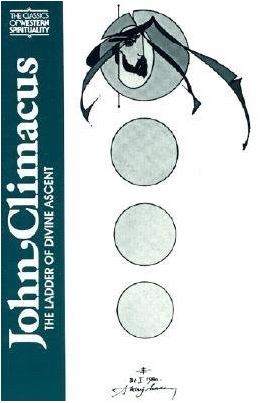
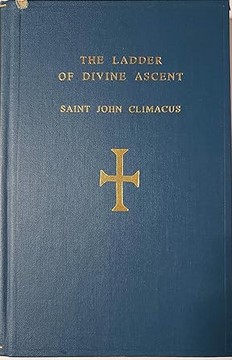
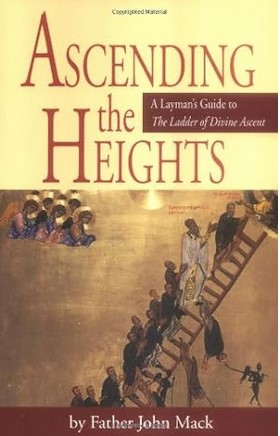
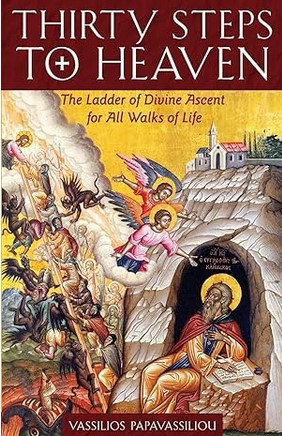
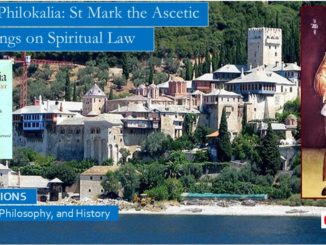
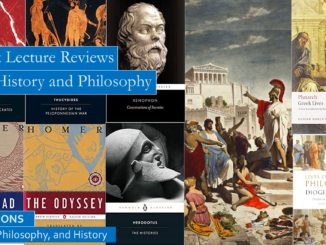
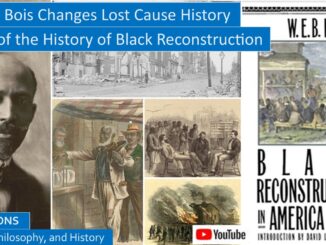
1 Trackback / Pingback